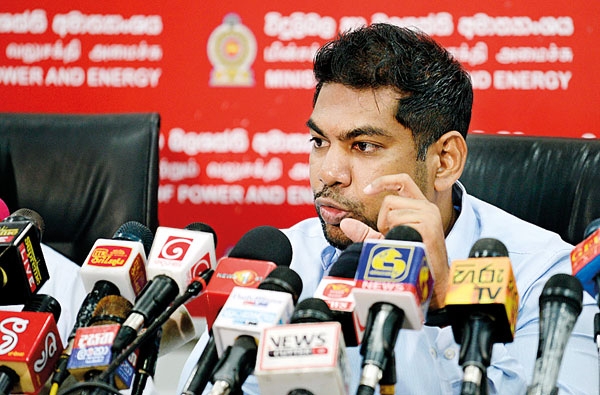Shock treatment in order to meet IMF deadline

Sri Lanka on Wednesday met an International Monetary Fund (IMF) deadline that triggered the process of approval of the Extended Fund Facility (EFF) of US$ 2.9 billion over 48 months. Now, the Fund’s board of directors will meet formally next month to place the stamp of approval.
It came when the government succeeded in having members of the Public Utilities Commission of Sri Lanka (PUCSL) approve the tariff hike of 66 % on electricity. There were dramatic moves on Wednesday before the decision to increase tariffs, a stunning shock for consumers. PUCSL Chairman Janaka Ratnayake was away in Australia. The government learned that he had not appointed anyone to act on his behalf and kept a decision pending.
A meeting of other directors was called hurriedly. They spoke to each other in a meeting arranged via zoom and endorsed the decision to raise tariffs. The decision was conveyed within hours to the IMF which had set Wednesday as the deadline for a government response. One source familiar with the events said 9 p.m. Washington time was set as the deadline. The PUCSL is the economic, technical and safety regulator of the electricity industry and other utility services. It regulates the electricity industry through licences, regulations, rules, and methodologies. Any tariff revisions require its approval and PUCSL Chairman Ratnayake had steadfastly resisted moves for an increase.
Electricity tariff revisions had forced the IMF to put on hold the approval of its Extended Fund Facility (EFF), which has been set up to provide assistance to countries experiencing serious payment imbalances because of structural impediments, slow growth or an inherently weak balance of payments position. No sooner the IMF had acknowledged that the government had increased electricity tariffs, did President Ranil Wickremesinghe react.
His media division said he told a discussion with rice mill owners last Thursday that the IMF’s Extended Fund Facility would be granted by March (next month). According to other sources, the IMF’s board directors are due to meet to sanction the facility. The move, no doubt, is a major step forward and will help the government to obtain bridging finance from other sources including multilateral agencies.
However, the electricity tariff increase comes as a major blow to fixed-income groups whose wages have remained static for many years. This is the second increase within six months. The previous increase was by 75%. Worse still, the shocking effect of this increase will be enormous and have an impact on prices of goods and services. That will include prices of essential food items including packets of cooked rice and curry. Coupled together with the increase in taxes, already effective, the burden cast on the income-earning class could be devastating.
That the IMF had demanded upward revision of electricity tariffs and income tax, though little known by the people, is a fact. The government had no alternative but to heed the demand (including others) if it were to obtain the EFF. Of course, it is paying a heavy price in the form of angering a very vast segment of the country’s citizenry by imposing further hardships on them. Former President Gotabaya Rajapaksa, who mismanaged the economy and plunged the country into bankruptcy together with his top aides, flew to Malaysia en route to China on Thursday at the invitation of Beijing. In December, he spent a holiday in Dubai. He has also been attending diplomatic events in Colombo.
As reported earlier, he has retained the security contingent that was assigned to him as President. The team comprises more than 100 commandos and specially trained groups besides the police and their Special Task Force (STF) personnel. Weeks earlier, he moved to his private residence at Mirihana in Nugegoda from the official bungalow allotted to him at Malalasekera Mawatha (off Baudhdhaloka Mawatha). He told confidants that the residence, free of charge which he was entitled to, was “too noisy” in view of the traffic on the main road. A high-ranking source re-sponded to the report in these columns last week that he proposed to move into the government bungalow at Stanmore Crescent, the one that was temporarily occupied by Mahinda Rajapaksa, twice former President. He has since shifted to his Wijerama residence which was under repairs. The source said the Stanmore Crescent bungalow would not be allotted to Gotabaya Rajapaksa. This is in the light of this official residence being assigned to the Ministry of Foreign Affairs and also being the official residence of the Minister.
The Sunday Times can reveal today that former Finance Minister Basil Rajapaksa had (before quitting office) worked a deal with China for a bigger loan to cover commitments. It was nearing fruition when President Gotabaya Rajapaksa called upon him to resign. When he refused, he successfully obtained the resignation of Prime Minister Mahinda Rajapaksa thus making the Cabinet of Ministers non-operational.
